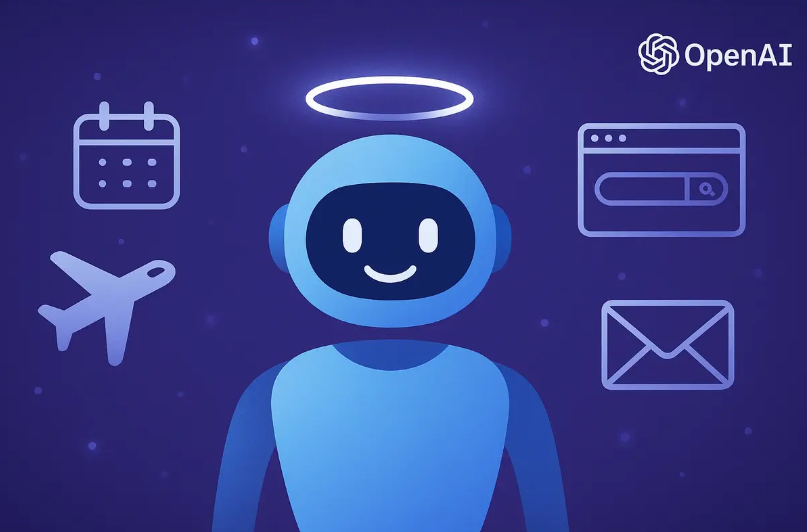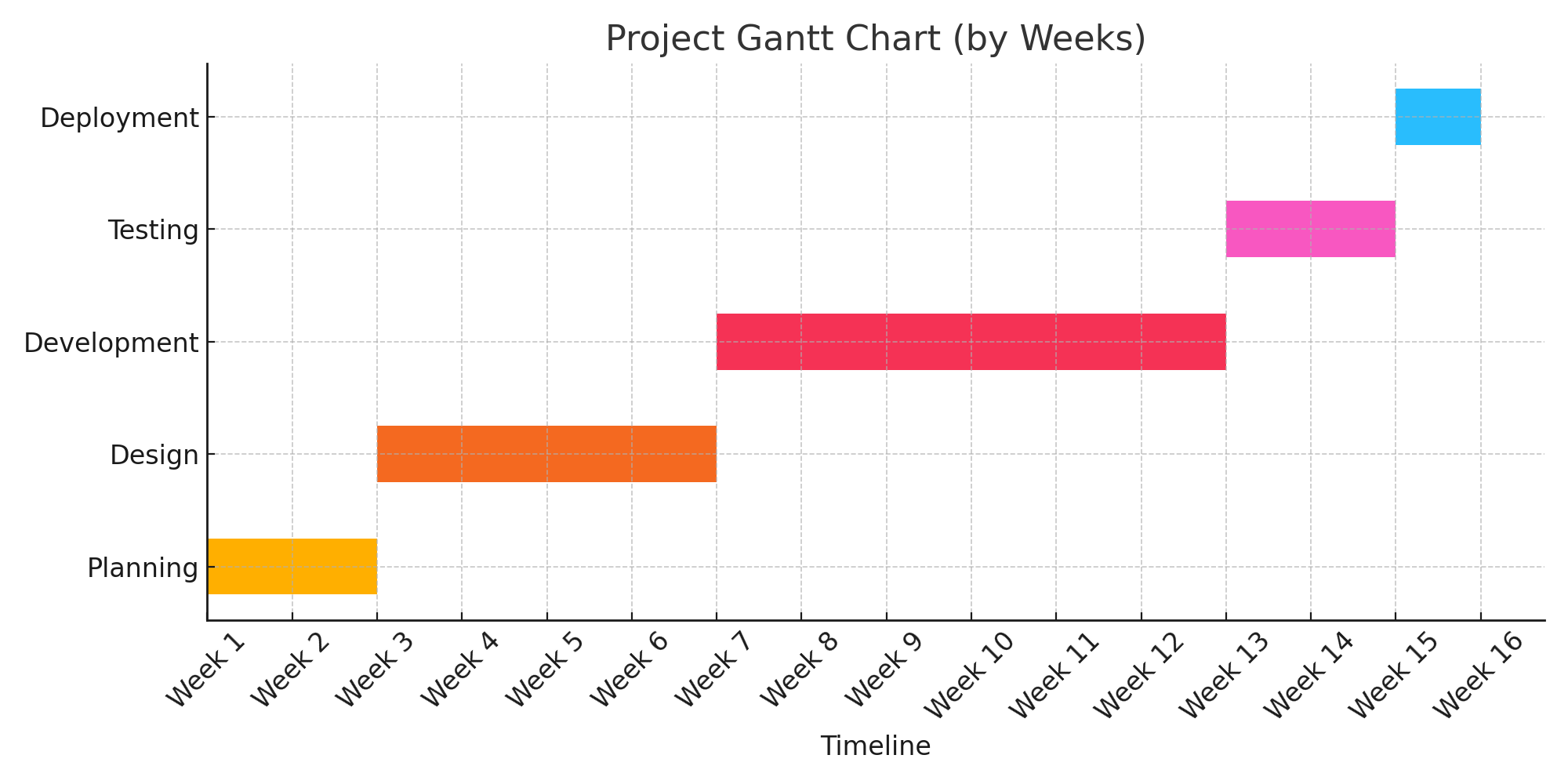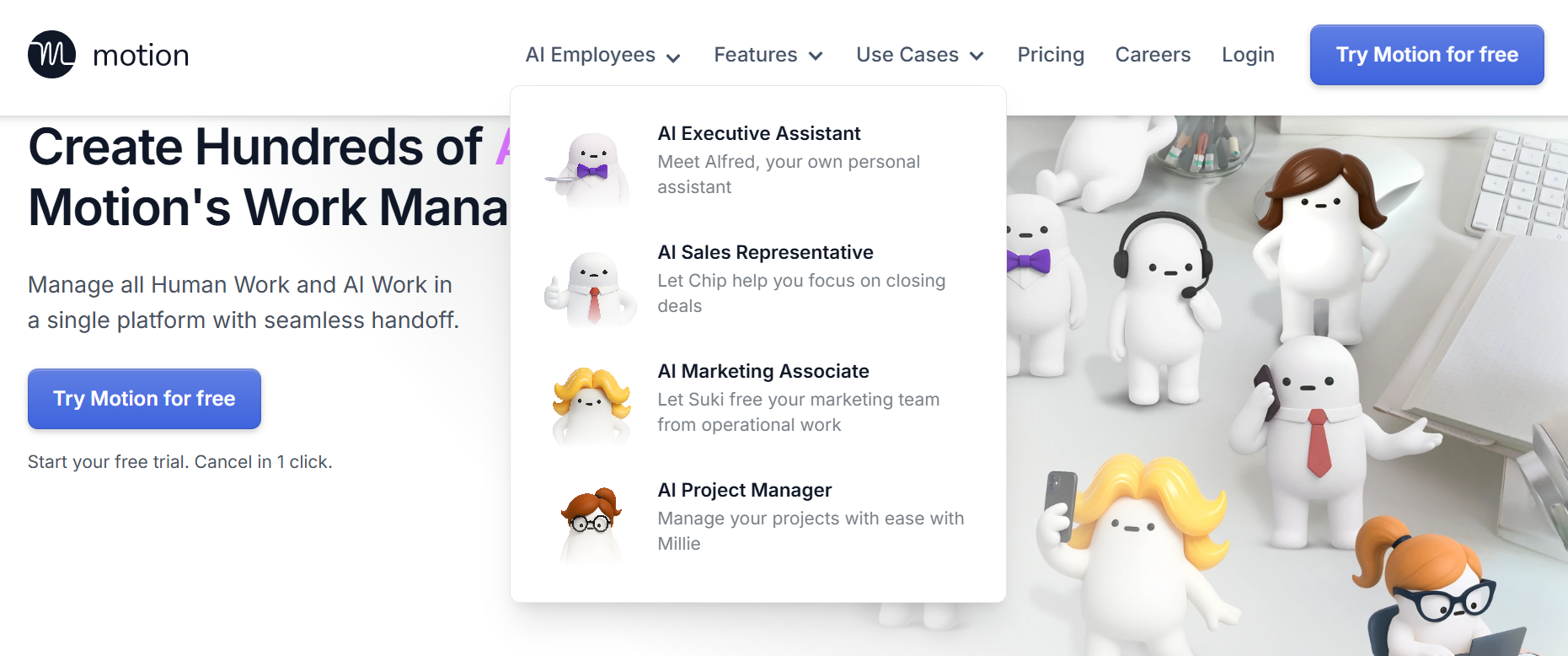The Evolution of the Production Assistant: Why You’ll Never Have to Do Mundane Tasks Again
Here’s something we haven’t had to think about before - what if we could palm off repetitive and mundane tasks to a process that is more automated. Well, that’s where I believe an AI production assistant can help and in my humble opinion, the next evolutionary stage for project management.
These digital allies can transform how work gets done, freeing up valuable hours and reducing the friction that once plagued even the best-run teams.
Why am I looking into an AI project assistant?
Simple: the job market is getting tougher and more competitive. As a project manager or producer, standing out means being more than just experienced, you need to be strategic. In my view, the teams that succeed today are those that stay nimble: smaller, faster, more adaptable. And that means rethinking how we manage time, tasks, and people.
But let me be clear - you still need the human production assistant. You need the people who bring soft skills, judgment, and diplomacy to the table. I’d be lost without the brilliant coordinators, assistants, and production managers I work with. They’re essential. The problem is, they often get bogged down with tedious, mind-numbing admin tasks that sap their energy and potentially slow the team down.
As a producer, I can’t always sit down with every team member to ask, "How’s it going?" A good coordinator can be your eyes and ears, while AI becomes your pen and paper. AI becomes one of the production team and supports them.
image sourced from OpenAI
Whether you're a project manager, founder, or team lead, here’s what you’ll never have to do again with an AI assistant on your team:
1. Chase People for Updates
Forget awkward Slack nudges and never-ending follow-up emails, AI tools will automatically check task progress, send reminders, and compile real-time updates, so you're always in the loop without being the nag.
2. Manually Update Project Trackers
Whether you're working in Asana, Jira, Trello, or a custom Notion board, AI will sync changes across tools and auto-update your dashboards. No more double-entry, no more outdated status boards. It all happens in real time.
3. Host Endless Status Meetings
With AI-generated summaries, real-time dashboards, and shared progress views, many check-ins can now be optional. Teams can stay aligned without the drain of daily meetings, especially when the meetings can sometimes feel redundant for team members.
4. Search Forever for That One File or Note
Thanks to context-aware search, AI can instantly find that comment from last week, that buried attachment, or that one decision you swear someone documented. You just need to remember what it was about, and not where it was saved.
5. Micromanage
AI will help teams stay accountable with built-in timelines, reminders, and clear next steps. You no longer have to hover to ensure things are getting done, it’s all visible, trackable, and automated.
6. Guess at Resourcing and Team Strengths
AI can forecast how your team will progress based on scope, allowing you to spot risks and rebalance resources before it becomes a problem. Over time, these systems will begin to recognise individual work patterns; offering insights into strengths, challenges, and the best fit for future tasks. That’s not just automation, it’s augmentation of your ability to lead strategically.
do away with repetitive admin to focus on more important tasks
But Wait - Does This Actually Exist Now?
Yes, it does. Here are some current AI tools doing this today. I have main stuck to project management softwares you may already be familiar with, as the aim here is not to overwhelm but onboard. These will not be perfect and provide solutions for everything (no software does), and there will be better systems that will come into play very soon.
Let me know if you want a deeper exploration on the benefits and limitations of these tools.
Now of course, these may not stand the test of time, but there will be more startups, more apps, more tools that will become our present. So why not get started on it now? But before I excitedly share some potential great links for you, I wanted to share my final thoughts.
My Final Thoughts.
These tools can be helpful to remove the friction: the repetitive, manual, low-impact work that clutters our calendars and pulls focus from where it’s most needed.
Because let’s be honest: we’re not just task managers. We’re relationship builders. We’re the ones keeping clients engaged, teams motivated, stakeholders aligned, and creative energy flowing. That doesn’t happen through spreadsheets or status emails. It happens in conversations, in strategy sessions, in the delicate moments that turn projects from good to great.
When you’re less buried in admin, you’re more present for the work that truly matters:
Navigating complex personalities
Managing client expectations with empathy and clarity
Guiding teams through tough decisions and course corrections
Making the call when no one else wants to
Holding the vision, even when the day-to-day gets messy
That’s what leadership looks like. And AI gives us back the time and headspace to do it properly.
So the question isn’t "Will AI replace us?"
The question is: What will you finally have the freedom to focus on once it’s no longer your job to chase updates, rewrite reports, or sync calendars?
What would you gladly hand off to an AI assistant today? Let’s start there and build from it.
There are several AI-powered apps right now that can automatically build project timelines and message team members about upcoming tasks or deadlines. As promised, here are the best ones available (noted in July 2025).
Top AI Tools That Create Timelines & Message People About Tasks
Motion
What it does: Uses AI to auto-schedule tasks into your (and your team’s) calendars, forming real-time project timelines.
Reminders? Ye, it sends personal reminders and adjusts in real time based on priority.
Great for: Small-to-medium teams who want smart daily planning and automatic task delegation.
Link: usemotion.com
ClickUp with AI + Automations
What it does: Can auto-generate timelines using Gantt views, dependencies, and AI-generated task descriptions.
Reminders? Yes, via built-in automations and Slack/Email integrations.
Great for: Teams managing complex, multi-stage projects.
Link: clickup.com
Trello with Butler (Automation) + AI Plugins
What it does: Not native AI, but using Butler (automation bot) + AI plugins, Trello can auto-assign tasks, create deadlines, and send reminders via email or Slack.
Reminders? Yes, via rules/triggers, e.g., “2 days before due, message person X.”
Great for: Simple project boards needing a lightweight assistant.
Link: trello.com
Microsoft Copilot + Planner/Outlook/Teams
What it does: Auto-generates project timelines (Planner/Project) and can proactively message people in Teams or Outlook about tasks, risks, and deadlines.
Reminders? Absolutely. AI nudges, smart recaps, and suggested follow-ups.
Great for: Enterprise teams already in the Microsoft ecosystem.
Link: microsoft.com/copilot
Asana with AI + Rules
What it does: Uses Asana Intelligence to build timelines and Gantt charts with task dependencies.
Reminders? Yes, via email, Slack, or in-app notifications. You can automate messages like “Notify John if task X is overdue.”
Great for: Medium-to-large teams needing clarity across functions.
Link: asana.com
Bonus (for Meeting Tasks)
Fireflies.ai or Otter.ai + Integration
Record meetings, extract tasks with AI, then push them into project tools with due dates and notifications.
forecast is one great example of AI-powered budgeting tools
There are also several AI-powered tools that can help with project budgeting: tracking costs, forecasting spend, alerting you to budget risks, and even auto-updating based on changes in scope or timeline.
AI Tools That Help with Project Budgeting
ClickUp + AI & Custom Fields
What it does:
Add custom budget fields to tasks/projects (e.g., Estimated Cost, Actual Cost)
Use AI to summarise cost overruns, identify discrepancies
Automations can alert you if a task’s cost exceeds budget
Good for: Teams already managing timelines/tasks in ClickUp
Link: clickup.com
Toggl Plan + Track
What it does: Combines task planning with time tracking and budget insights
Use AI to forecast budget burn based on tracked hours
Notifies you if you're approaching a time/cost cap
Good for: Time-based service businesses (agencies, freelancers)
Link: toggl.com
Forecast.app
What it does:
Full AI-powered project + budget management
Predicts project costs based on time, scope, team availability
Flags scope creep, budget risks, and utilisation gaps
Very strong in combining PM + finance data
Link: forecast.app
Smartsheet + AI Work Insights
What it does:
Create smart budget dashboards tied to project milestones
Predict budget slippage based on delays or workload
AI insights highlight risk areas early
Great for: Enterprise-level ops, construction, large teams
Link: smartsheet.com
Cost Management in Microsoft Project / Copilot
What it does:
Tracks resource costs, project variance, and estimated vs. actual spend
AI highlights over-budget trends and can generate summary reports for leadership
Best for: PMOs, IT projects, engineering
Link: microsoft.com
Bonus: Finance-Specific Tools (Integrate with PM)
TruePlan
AI-driven headcount and resource planning with cost forecasting
Integrates with finance tools (QuickBooks, Xero, etc.)
Float
Focused on resource planning, but tracks billable hours, budgets, and costs with predictive insights



